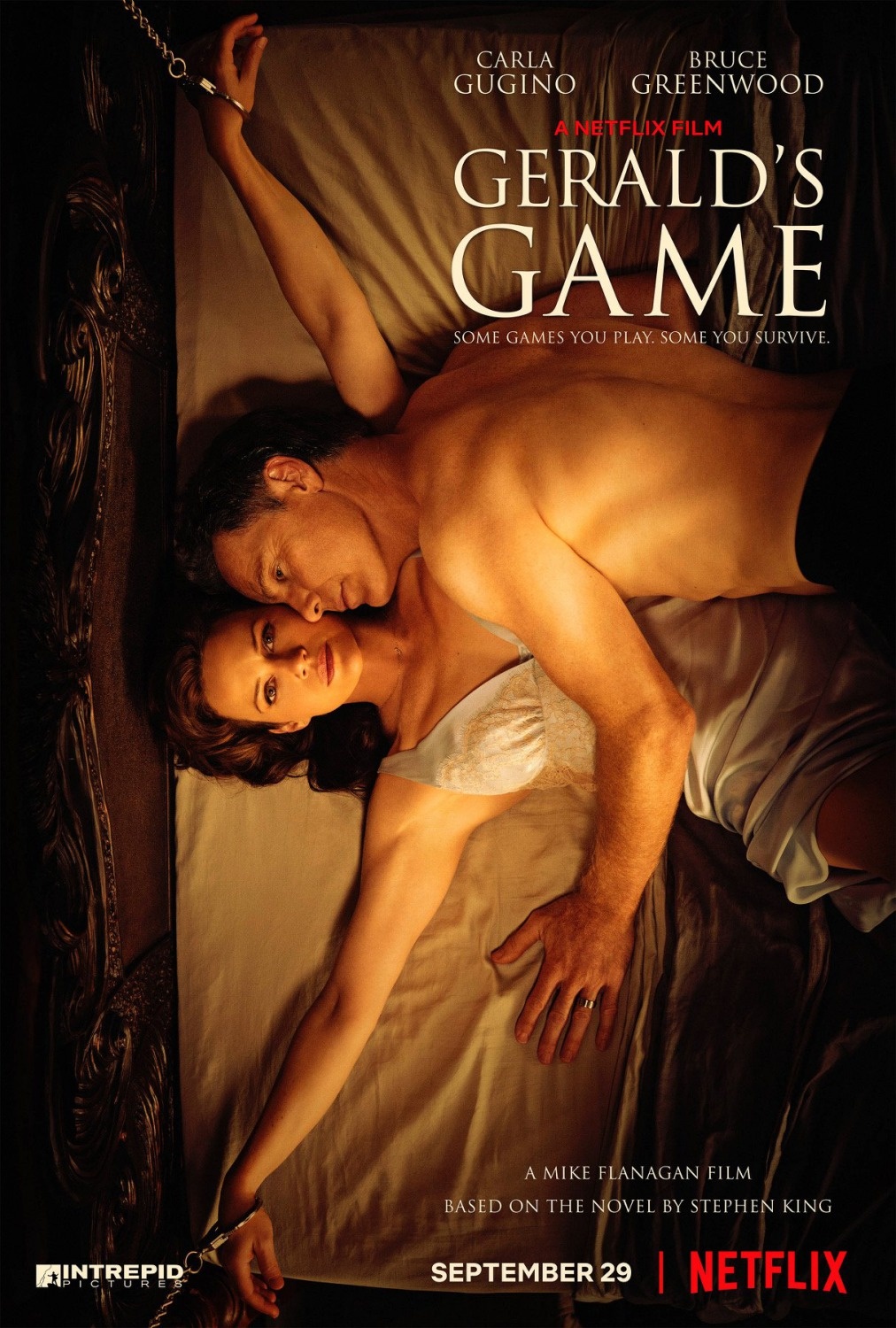Is it possible for Stephen King to be having a renaissance, even though he’s never really gone away at any point in the past four decades? Heck, even sustaining horrendous injuries when struck by a van in 1999 didn’t really slow him down. And now, in just the past four months, he’s seen big-screen adaptations of The Dark Tower and It, the publication of his new book Sleeping Beauties (co-written with his son Owen), and, this weekend, the Netflix adaptation of Gerald’s Game arrives. (Still need more? Netflix’s take on King’s novella 1922 premieres in a few weeks.)
Director Mike Flanagan (Hush, Oculus) has wanted to adapt King’s 1992 novel since he was a teenager, but, as with pretty much everyone who’s read the book, he considered it simply unfilmable. As it turns out, Flanagan was wrong, and he has proven it himself, crafting one of the better King adaptations to date—a haunting psychological thriller that will linger with you for a good long while.
Carla Gugino stars as Jessie, a woman stuck in a failing, loveless marriage to Gerald (Bruce Greenwood). To try to light a little fire under their relationship, the two retreat to a secluded lake house for a weekend of alone time. She’s packed some new lingerie, and he’s brought along his little blue pills and some handcuffs (all the better to live out my closeted rape fantasies, my dear).
Within ten minutes of the kink getting underway, after giving Jessie just enough time to realize that he’s been holding some rather dark thoughts in the corners of his mind, Gerald has a fatal heart attack, and Jessie is left shackled to the bed with no way to free herself. Within a few hours, as panic, fatigue, and dehydration all start setting in, Gerald’s Game amps up as Jessie begins to hallucinate an angel and a devil on her shoulder—she is the angel, and Gerald is the devil. A mangy (and hungry) stray dog and a midnight visit from the boogeyman further complicate issues, along with Jessie’s painful memories of a scarred childhood.
Flanagan, working from the script he co-wrote with his Oculus partner Jeff Howard, brilliantly uses the one-room scenario to maximum effect, giving a palpable sense of both claustrophobia and dread as Jessie’s ordeal wears on. He also wisely forgoes the Psycho strings and jump-scare tropes in favor of a simple (yet highly effective) vibe of eerie creepiness. The only real horror moment comes, as book readers are well aware, with the “hand scene”, but even that is played on the understated side, as a plot point and not an excuse for gory exploitation.
As with many of King works, the ending is where things begin to unravel, and Flanagan may have been much better served coming up with his own instead of relying on the absurd post-logue that King concocted. It’s not enough, though, to offset the balance of the film, including a career-best performance from Gugino; her work is nothing short of stunning here, an emotional and psychological tour de force that alone is worth the price of a Netlfix subscription.
King himself called Flanagan’s adaptation “[h]orrifying, hypnotic, terrific”, and it is, on every level. Viva la renaissance.
Rating
4.5/5 stars
